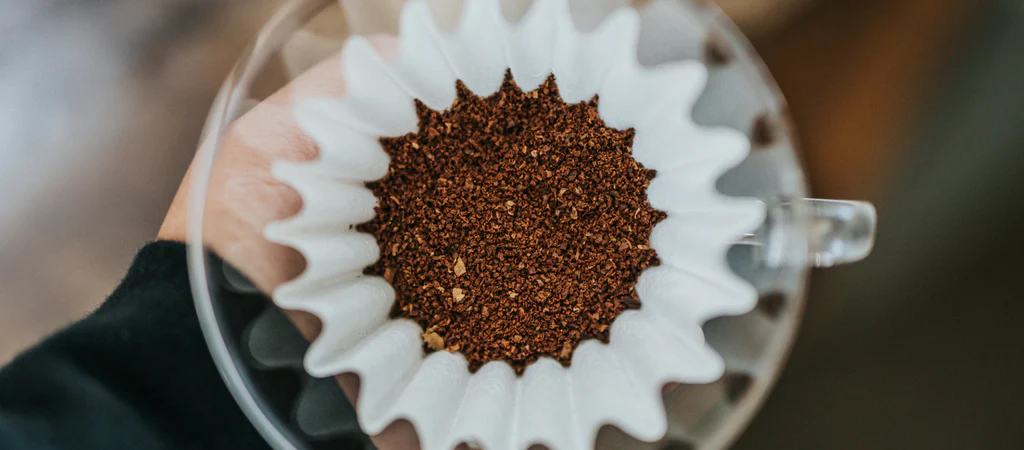Every morning, millions of people around the world begin their day with a hot cup of coffee. It’s more than a beverage—it’s a ritual, a moment of pause, and for some, an absolute necessity. But beneath that comforting routine lies an environmental cost many of us don’t think twice about: the waste generated by single-use coffee filters.
If you’re looking for a simple, practical step toward a more sustainable lifestyle, switching to reusable coffee filters is an excellent place to start. It’s low-effort, high-impact, and can even make your coffee taste better.

The Problem With Disposable Filters
Those thin white paper filters may seem harmless, but their impact adds up—fast.
- Globally, we dump 6 million tonnes of used coffee grounds into landfills each year, many of them wrapped in paper filters.
- When paper filters aren’t composted properly, they break down slowly and release methane, a potent greenhouse gas.
- Paper filters are typically bleached with chlorine or other chemicals, contributing to water pollution during production.
- Many disposable filters are packaged in plastic, adding to the problem of single-use plastic waste.
For something that gets used for just a few minutes and then tossed, paper filters leave a surprisingly large footprint.

Enter Reusable Coffee Filters
Reusable coffee filters are exactly what they sound like—durable filters made from materials like stainless steel, fine mesh, or organic cotton, designed to be washed and reused hundreds (or even thousands) of times. They’re compatible with most standard coffee makers, pour-over systems, and French presses.
Popular types include:
- Metal Mesh Filters: Common in pour-over setups like Chemex or Hario. These allow more oils and fine grounds into the brew, producing a richer, fuller flavor.
- Stainless Steel Cone Filters: Durable and dishwasher-safe, perfect for automatic drip machines.
- Cloth Filters (Cotton or Hemp): A favorite among eco-conscious brewers. These offer a clean flavor and are fully compostable when they eventually wear out.

How Reusable Filters Help the Environment
1. Reduces Landfill Waste
- Using a reusable filter eliminates the need for paper ones—and the packaging they come in.
- It keeps both filter paper and coffee grounds out of the landfill, where they would otherwise produce methane.
2. Lowers Deforestation and Manufacturing Emissions
- Fewer paper filters mean less demand for tree harvesting and paper production.
- Reusable filters require far less energy to manufacture (especially when used for years), making their lifecycle emissions much lower than disposable alternatives.
3. Encourages Composting
- With a reusable filter, you can collect and compost your coffee grounds more easily—no need to separate wet paper from the mix.
- Coffee grounds are rich in nitrogen and make an excellent addition to compost piles, supporting circular waste systems at home.

Bonus: Better Tasting Coffee
Sustainability aside, many coffee lovers report that reusable filters actually enhance the flavor of their coffee.
- Metal filters allow more of the coffee’s natural oils to pass through—oils that are often trapped by paper. These oils carry flavor compounds that give your brew its depth and richness.
- Cloth filters strike a balance between metal and paper—allowing oils to pass while filtering out most sediment.
The result? A cup of coffee that’s more aromatic, full-bodied, and true to the bean.
Tips for Making the Switch
Cleaning and Maintenance
- Rinse metal filters after each use and deep-clean weekly by soaking in a vinegar-water mix.
- Cloth filters should be rinsed thoroughly and occasionally boiled to remove oil buildup.
- Store cloth filters in water in the fridge between uses to prevent mildew.
Matching Your Filter to Your Brew Method
- Drip coffee makers: Use stainless steel cone filters.
- Pour-over fans: Try a mesh metal or gold-tone filter.
- French press users: You’re already using a reusable filter built into your press!
End of Life
- When your cloth filter wears out, it can be composted.
- Metal filters can be recycled with other metal items (check local guidelines).
Crunching the Numbers: Is It Worth It?
Let’s do a quick comparison.
If you drink one cup of coffee per day using a paper filter:
- You’ll use 365 paper filters per year.
- If each filter costs ~$0.03, that’s over $10/year on something you throw away.
- A reusable filter costs between $10–$20 and can last for 2–5 years or more. You break even quickly—and save money in the long run.
One Small Habit, Big Ripple Effect
It’s easy to underestimate the power of small changes, but habits like switching to a reusable coffee filter can inspire broader shifts—both personally and collectively.
You start looking at other parts of your daily routine: Could you ditch plastic sandwich bags? Try a reusable water bottle? Compost more?
Each step reinforces a mindset of sustainability. And when enough people adopt that mindset, the impact grows exponentially.
Brew With Purpose
We often associate environmental change with grand gestures or major lifestyle overhauls. But real change happens in the ordinary moments—like your morning coffee ritual.
By switching to a reusable filter, you:
- Reduce waste
- Lower your carbon footprint
- Brew tastier coffee
- Save money
- Send a quiet but powerful message: I care about what I consume—and how it affects the world around me.
So the next time you reach for that filter, think about the kind of future you’re brewing.
